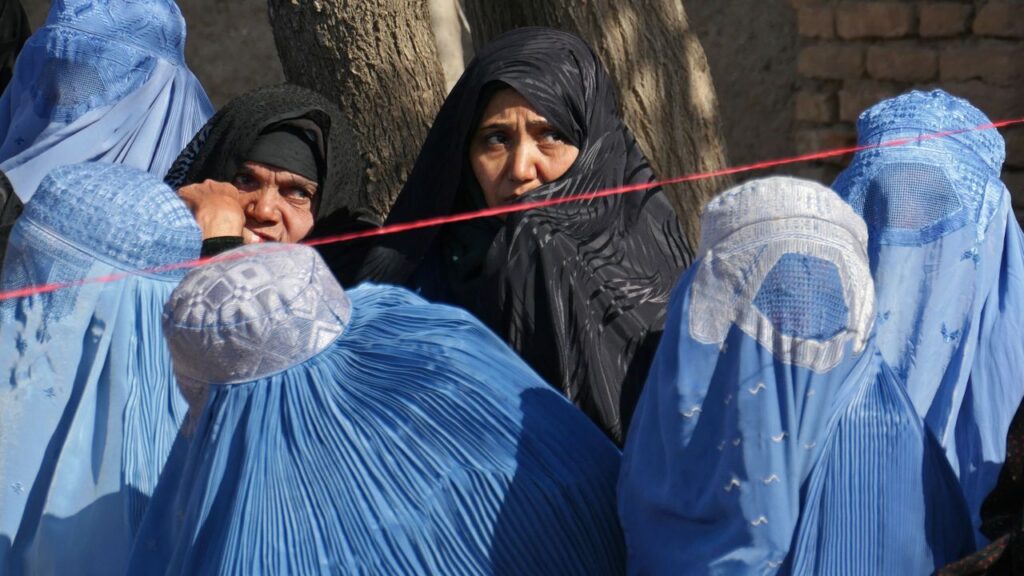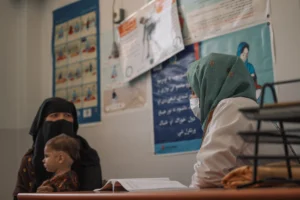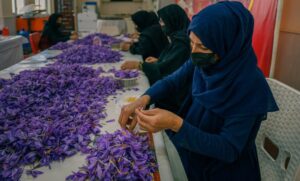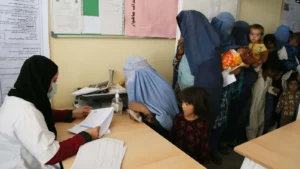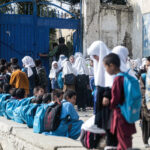Author: Mahdi Mozaffari
Congratulations to all Muslims around the world on the blessed birth of Prophet Muhammad (PBUH), the messenger of mercy and kindness. The auspicious occasion of his birth provides a valuable opportunity to explore various aspects of his esteemed character and to benefit from his priceless teachings. Among these, examining the remarkable behavior of the Prophet (PBUH) towards women, especially his beloved daughter Fatimah (SA), can serve as a valuable model for all individuals, particularly men.
The Prophet Muhammad (PBUH), who epitomized kindness and compassion, displayed utmost love and respect in his relationships with his family, particularly with his daughter Fatimah (SA). As narrated by Aisha (RA), the beloved wife of the Prophet (PBUH), “Whenever Fatimah entered the house, the Prophet would rise to welcome her, kiss her, and greet her with a beaming face.” This narration is just a glimpse into the boundless love the Prophet (PBUH) had for his daughter. As a perfect model for humanity, he teaches us that showing love to family, especially women, is both essential and commendable.
In addition to this benevolent behavior, there are other historical accounts that illustrate the respectful and kind interactions of the Prophet with people, particularly women. For instance, Abdul Malik ibn Umayr recounts an incident involving a woman named Umm Ala, stating that the Prophet visited her during her illness and said, “Good news to you, O Umm Ala; the sickness of a Muslim expiates their sins, just as fire purifies iron.” Such behaviors demonstrate the Prophet’s (PBUH) ability to combine assertiveness and strength with kindness and compassion.
The Behavioral Model of the Prophet (PBUH) for All Eras
The behavioral model of Prophet Muhammad (PBUH) in his interactions with women and girls is not limited to his time; it continues to inspire all people across generations. Through his kind and respectful demeanor, he demonstrated to the world that Islam holds women and girls in high regard, and this respect is a fundamental principle of ethics and humanity.
The Prophet (PBUH) created equal opportunities for girls in various fields, showing that they possess talents and capabilities just like boys, enabling them to play effective and constructive roles in society. This behavioral model not only helped combat erroneous and discriminatory thoughts against women but also strengthened their position and dignity within families and communities.
Today, in light of scientific and social advancements, the importance of emulating the conduct of the Prophet (PBUH) in dealing with girls has become increasingly evident. Many of the problems and challenges faced in contemporary societies stem from traditional and discriminatory views toward women. Promoting a culture of respect for women and creating equal opportunities for them is one of the most crucial strategies for building healthy and progressive societies.

A Stark Contrast to the Current Situation in Afghanistan
Unfortunately, in some societies, including Afghanistan, we witness distressing scenes that starkly contradict not only the proud teachings of Islam but also human conscience. Behaviors that are at odds with the model set by the Prophet (PBUH) and the conduct of his family are prevalent in certain Islamic communities today. The misogynistic attitudes and violent behaviors exhibited by government officials and some fathers towards their daughters are so painful that they evoke memories of the pre-Islamic era.
These actions not only undermine the dignity and humanity of women but also seriously damage the foundations of families and society. We see and hear through media about the misogynistic behaviors of those in positions of power towards women and girls. Such actions not only harm the status of women in society but also tarnish the image of Islam itself.
Gender Discrimination in Afghanistan
More than two years have passed since the establishment of the caretaker government in Afghanistan, and during this time, we have witnessed widespread and increasing violations of girls’ rights in the country. These rights are not only inconsistent with international human rights standards but also violate basic human standards. The caretaker government, through discriminatory policies and the disregard for equal rights for girls and boys, has effectively deprived half of the country’s population of access to the most basic human rights.
According to the current rulers, boys have the right to receive an education, work, and play a role in society, while girls are deprived of many of these rights. This is despite the fact that government decision-makers claim that all their actions are based on Islamic teachings and have the approval of the Prophet. This claim is made even though the history of Islam and its teachings clearly advocate for equal rights for women and men and condemn any form of gender discrimination. Therefore, the imposition of these restrictions on girls is not only inconsistent with Islamic teachings but also represents a blatant distortion of these teachings. This practice has not only led to the violation of the rights of half of the country’s population but has also posed serious challenges to the country’s future.
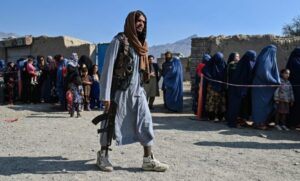
Comparison of Current Behaviors with the Pre-Islamic Era
These discriminatory decisions and behaviors resemble more closely the actions and words of Arab men during the pre-Islamic era than the behavior of the esteemed Prophet of Islam. In that dark time, girls were considered a burden on families, and being buried alive was a tragic fate for them. This sick mentality was rooted in the devaluation and degradation of women.
Today, in some societies that claim adherence to Islam, we witness a repetition of these same practices under a new guise. Severe restrictions on education, work, and even personal freedoms for girls in countries like Afghanistan indicate that pre-Islamic thinking still has roots in some minds. These behaviors are not only in conflict with human and Islamic teachings but also constitute a clear crime against human rights.
The Necessity of Returning to Authentic Islamic Teachings
To improve the situation of women and girls in Afghanistan, it is essential to return to authentic Islamic teachings and the behavioral model of Prophet Muhammad (PBUH). Instead of personal and subjective interpretations of religion, we should refer to the verses of the Quran and authentic traditions, respecting women and girls and recognizing their equal rights based on these texts.
Religious and governmental leaders in Afghanistan bear a significant responsibility in this regard. They must promote correct Islamic teachings and create fair laws to pave the way for gender justice and the flourishing of women’s and girls’ talents.
The behavior of Prophet Muhammad (PBUH) towards his beloved daughter Fatimah (SA) serves as an unparalleled model for all humanity, especially men. This model demonstrates that showing love for daughters, respecting them, and providing equal opportunities for their growth and development are moral and human obligations. Unfortunately, in some societies, including Afghanistan, we observe behaviors that starkly contradict Islamic teachings and the behavioral model of Prophet Muhammad (PBUH). To improve the situation of women and girls in Afghanistan, it is essential to return to authentic Islamic teachings and the behavioral model of Prophet Muhammad (PBUH).

